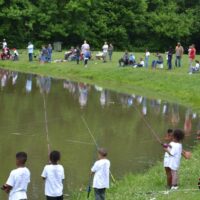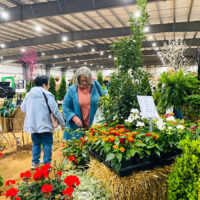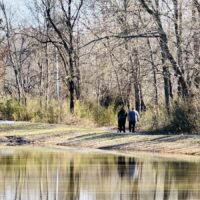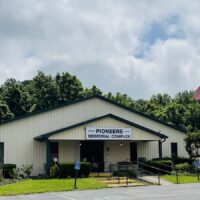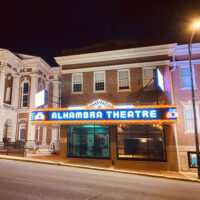Friday evening when I finished writing the first version of this column, the rose-breasted grosbeaks were running nearly a week behind schedule. It was a big disappointment.
I wondered if I had jinxed the return of grosbeaks. Maybe I shouldn’t have stated so confidently in an April 14 column that the beautiful birds were headed our way and would arrive in Hopkinsville any day.
Then first thing Saturday morning I opened an email from a Hoptown Chronicle reader who said three grosbeaks had just arrived at her Owen Drive residence. They were eating peanuts from a feeder in her yard.
So I looked outside to the feeder in my backyard. And there he was — a male grosbeak with the distinctive splash of red on his white chest. Later in the day my husband spotted a second male.
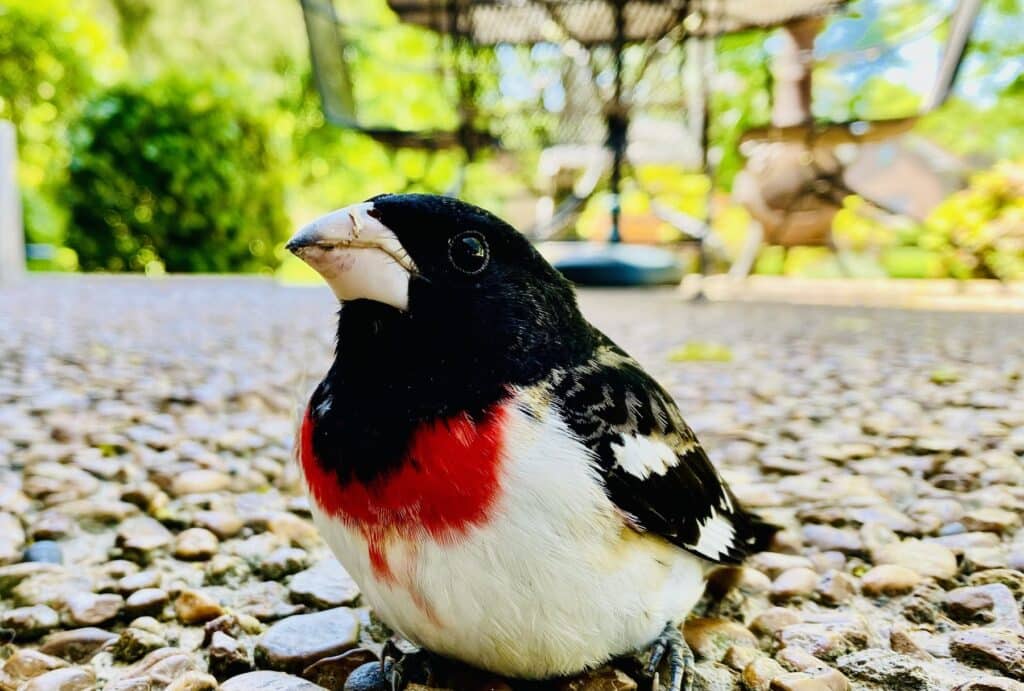
While the birds seemed to be a little late this year, my first column about them had traveled very well. I heard from several Hoptown Chronicle readers who also admire the males and watch for them every spring. (The females are less flashy. They are brown with touches of yellow.)
I even heard from a bird advocate in Philadelphia who read the column and wanted me to know that I had likely made a mistake a few years ago when I let a stunned grosbeak rest on the patio after he flew straight into our glass door. Although I wrote that the bird recovered after several minutes and flew up into our ash tree, a member of the Bird Safe Philly team said most birds eventually die after flying into a glass door or window. She suggested I find a licensed bird rehabber in our area and be prepared for a rescue the next time this happens.
“Never let a window-stricken bird fly off,” she wrote. “Flight is NOT a sign of health.”
Call me skeptical, but I seriously doubted there was anyone around Hopkinsville licensed to save songbirds that fly into hard objects.
But just to rule out the possibility, I searched online.
You know where this going, right?
Of course there is a federally licensed songbird rehabber in Christian County. I called the number and got a message: “If you need wildlife help, please text me.”
I texted and identified myself.
That’s when I learned that Lynn Hazelrigg, who just happened to be my son’s first grade teacher nearly 30 years ago, was the expert I was seeking.
Lynn lives a few miles outside of town and runs the Hidden Springs Sanctuary on her farm. She received her federal license from the U.S. Fish and Wildlife Service last fall. The day we spoke, she was caring for some squirrels, one crow with a broken wing, two robins, one finch, one dove and a few baby birds that appeared to be wrens. Sometimes tiny birds cannot be identified until they grow a bit.
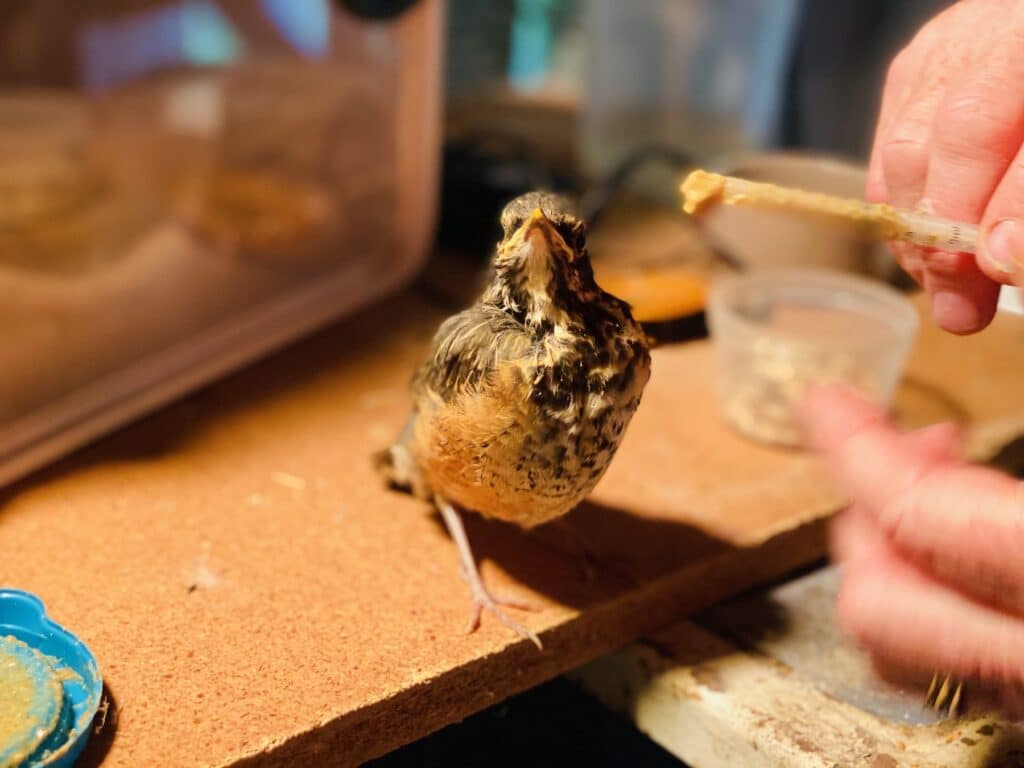
Also on the farm are two doves — one male called Joey and a female who just goes by Dove — that bonded with Lynn during their rehab. They are free to leave but choose to hang around. The female often swoops in and sits a while on Lynn’s head as she’s doing chores.
The federal certification process for a bird rehab license took Lynn more than a year. She trained under a bird expert at the Broadbent Wildlife Sanctuary about 30 miles northwest of Elizabethtown. She’s also had a Kentucky permit for almost 10 years to rehab mammals.
The Kentucky Department of Fish and Wildlife defines wildlife rehabilitation as a “process of rescuing, raising, and arranging for veterinary medical care of orphaned, sick, displaced, or injured wildlife with the goal of releasing the wildlife back to its natural habitat.”
Lynn told me that her late husband — the Rev. Jim Hazelrigg, who died in January 2017 — encouraged her to get her first wildlife rehab license.
“Now this is my reason to get up in the morning,” she said.
Before she retired from teaching in 2018, Lynn usually had animals in her elementary school classrooms. It was a natural progression from there to her farm.
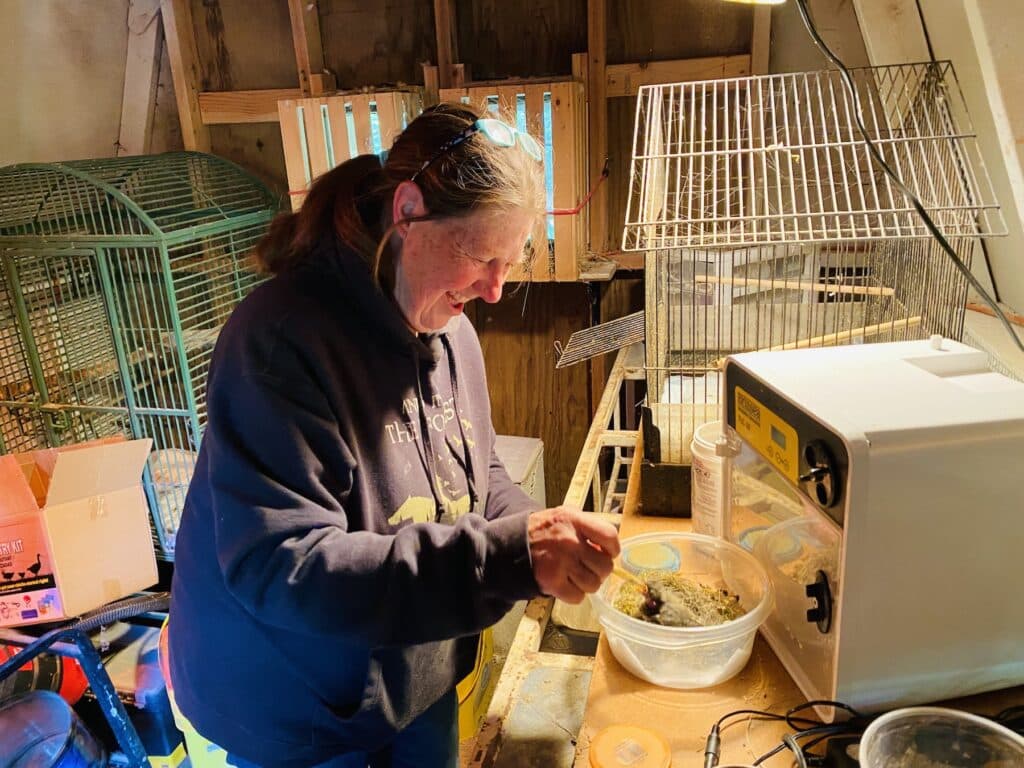
Lynn does all of her rehab work as a volunteer. If anyone who leaves an animal at her sanctuary wants to make a donation to help her pay for supplies, they can do that through her Venmo account, @Lynn-Hazelrigg.
“I’ve been amazed at the generosity,” she said.
When she’s caring for birds, Lynn feeds them about every 90 minutes during the day. Occasionally when she’s driving family members to a doctor’s appointment out of town that requires her to be away from home most of the day, she’ll load some of the birds into a crate and carry them with her. She’ll find a shady spot and care for the birds while her family members are inside a medical office. Then they all head home, having been fed and cared for.
Last spring, someone in Hopkinsville brought an injured rose-breasted grosbeak to Lynn. The rehab was successful and she was able to release the bird.
If you need help with wildlife rehab, you can text Lynn at 270-889-7107.
Meantime, I’ll be counting birds at my house. We spotted a third grosbeak Sunday morning.
Wildlife rehabiliation in Western Kentucky
The following organizations are licensed with the Kentucky Department of Fish & Wildlife as wildlife rehabiliators. See the full list and browse by county.
Back Too The Wild Rescue/Rehab (Christian County)
Contact: Kathleen Pacheco, 810-434-0067
Animal types: Raptors
Hidden Springs Sanctuary (Christian County)
Contact: Lynn Hazelrigg, 270-889-7107
Animal types: Mammals, Birds
Western Kentucky Wildlife Rescue and Rehabilitation Inc. (Muhlenberg County)
Contact: Kathy Martin, 270-543-1345
Animal types: Mammals, Reptiles, Amphibians
Wild Side Rehab (Muhlenberg County)
Contact: Adam Westerfield, 270-256-5908; Crystal Westerfield, 812-319-3912
Animal types: Mammals
Jennifer P. Brown is co-founder, publisher and editor of Hoptown Chronicle. You can reach her at editor@hoptownchronicle.org. Brown was a reporter and editor at the Kentucky New Era, where she worked for 30 years. She is a co-chair of the national advisory board to the Institute for Rural Journalism and Community Issues, governing board past president for the Kentucky Historical Society, and co-founder of the Kentucky Open Government Coalition. She serves on the Hopkinsville History Foundation's board.
